Toshinobu "Toshi" Kubota is a Japanese singer,songwriter,musician,music producer,and radio personality. He has produced six million-seller records and thirty-three Top 40 singles during his career. Kubota is currently part of Sony Music Japan. In addition,he has composed and written songs for many singers including Hiromi Iwasaki,Misia,Toshinori Yonekura,Kyōko Koizumi,and many other recording artists.
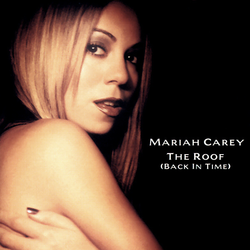
"The Roof" is a song by American singer-songwriter Mariah Carey,taken from her sixth studio album,Butterfly (1997). It was released as the third single from the album in Europe,on March 20,1998,by Columbia Records. Similar to the treatments of "Butterfly" and "Breakdown","The Roof" received a limited worldwide release due to Carey's conflict at the time with Sony. The song was written and produced by Carey and Trackmasters,and is built around a sample from "Shook Ones " (1995) by American hip hop duo Mobb Deep. The song's lyrics recount an intimate roof-top encounter between lovers,and how the memory affects the protagonist. The extended remix features a rap verse by Mobb Deep;both versions were praised by contemporary music critics.

"Scandalous" is the eighth track on Prince's soundtrack album Batman and was released as the album's fourth single,five months after the album was released. The music is attributed to Prince and his father,John L. Nelson. A maxi single was released after the single titled The Scandalous Sex Suite,which contained a three part 19 minute suite of the song "Scandalous",with the three parts named The Crime,The Passion,and The Rapture. Kim Basinger,who was dating Prince at time and who also played the character Vicki Vale in Batman,also appeared on the maxi single.

"New Power Generation",or "N.P.G.",is a song by American musician Prince from the 1990 album and film,Graffiti Bridge. It is an anthem for his backing band,The New Power Generation,who were officially co-credited on his album covers for a time,and continued to back him up until 2013,albeit with a changing lineup. The song saw minimal chart attention,and was not as successful as its predecessor,"Thieves in the Temple".

"Diamonds" is a song by American trumpeter Herb Alpert from his 27th studio album,Keep Your Eye on Me (1987). Released as the second single from Keep Your Eye on Me on March 14,1987,by A&M Records,the song features lead and background vocals by American singers Janet Jackson and Lisa Keith.

"Get Wild" is a song by The New Power Generation,and the first single from their 1995 album,Exodus. The song was a hit in the UK,reaching number 19 in the UK Singles Chart.
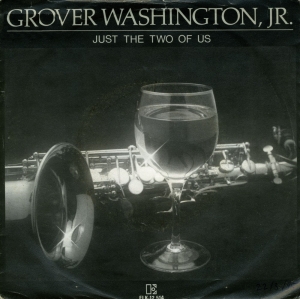
"Just the Two of Us" is a song written by Bill Withers,William Salter,and Ralph MacDonald,and recorded by Grover Washington Jr. with Withers on vocals. It was released in February 1981 through Elektra Records.

"Ain't No Nigga" is the second single from the American rapper Jay-Z's first album,Reasonable Doubt,and is featured on the soundtrack to the 1996 Eddie Murphy movie,The Nutty Professor. It was released on March 19,1996. The track features Foxy Brown,and uncredited vocals by Jaz-O.

"Light Years" is a song by the British funk and acid jazz band Jamiroquai,originally released in 1994 as a song from their second studio album,The Return of the Space Cowboy. It was released as a single on 12 February 1995 but failed to chart on the UK Singles Chart due to little promotion of the track.

"Love on Top of Love" is a song by Grace Jones released in 1989 as the first single from Jones' ninth studio album Bulletproof Heart.
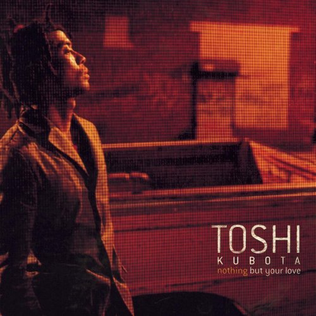
Nothing But Your Love is the tenth studio album of Japanese singer,Toshinobu Kubota,released on June 28,2000.
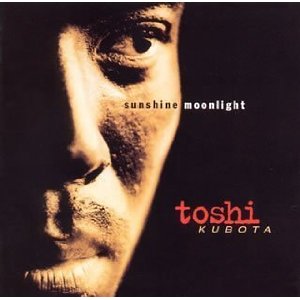
Sunshine Moonlight is the eighth studio album of Japanese singer Toshinobu Kubota,released on September 5,1995. The album credited under the name,Toshi Kubota. This was also Kubota's first English-language album. The album's musical style ranges from 1980s–90s R&B and pop to funk elements such go-go. Synth instrumentation was not employed in recording most of the song as the album contains live instrumentation.

La La La Love Thang is the ninth studio album of Japanese singer Toshinobu Kubota,released on December 2,1996. The album has been certified triple platinum by the Recording Industry Association of Japan. It was also successful in international music markets and yielded two singles:"Niji No Grand Slam" and "La La La Love Song". Kubota then embarked on his first international concert tour in 1996,which he titled the Oyeees! Tour. A live album,Toshinobu Kubota Concert Tour '96:Oyeees!,was released which featured footage from the tour. As of February 2012,La La La Love Thang has sold over 840,000 copies worldwide.
"Freek'n You" is a song by American R&B group Jodeci recorded for their third album The Show,the After Party,the Hotel. The song,released as the album's first single,peaked at number 14 on the Billboard Hot 100 in 1995. Listed by Billboard magazine as one of the best selling singles of 1995,it was certified gold by the RIAA for sales in excess of 600,000 units.

"Love Rendezvous" is the fourth single from the album Bizarre Fruit/Bizarre Fruit II by British band M People. Written by Mike Pickering and Paul Heard and Heather Small and produced by M People,it was released on 14 October 1995 after the band's world tour. The song peaked at number thirty two on the UK Singles Chart.
The discography of Japanese R&B singer Toshinobu Kubota consists of nineteen studio albums,ten compilation albums,two tribute albums,and over seventy singles. In 1985,Kubota signed with Sony Japan and began producing and writing songs for many of label's singers and groups. Under the label,Kubota released his first single,"Shitsui no Downtown" in June 1986,followed by "Time Shower ni Utarete" in December. Both songs were well received by radio,placing fifty-three and thirty-five on the Oricon Singles Chart. In September 1986,his debut album,Shake It Paradise,peaked at number twenty-two and remained on the Oricon Albums Chart for seven consecutive weeks. Shake It Paradise became certified million. The following year in 1987,Kubota's second studio album,Groovin',debuted at number thirty-three and was certified million. In February 1988,Kubota released "You Were Mine",which debuted at number two. In September 1988,Kubota released his third album,Such A Funky Thang!. The album peaked at number one and was certified million. The album also spawned the top-charted single "Dance If You Want It",which peaked at number three. In 1989,Kubota released his compilation album,The Baddest. The album also peaked at number one and was certified million.
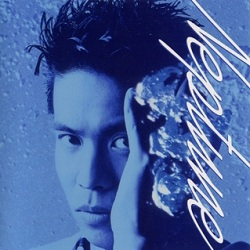
Neptune is the sixth studio album by Japanese singer Toshinobu Kubota,released on July 1,1992. The album charted at number 3 on the Oricon Monthly Albums chart and remained on the charts for total of 13 weeks. The album sold a total of 484,000 units,reaching double platinum certification.

Bumpin' Voyage is the seventh studio album of Japanese singer Toshinobu Kubota,released on January 28,1995. The album charted at number 1 on the Oricon Albums chart and remained on the charts for total of 12 weeks. The album sold a total of 600,000 units,reaching double platinum certification. In September 1995,Kubota re-recorded most of the album into English language and released the material on his eighth studio album Sunshine,Moonlight.

"Nagareboshi to Koi no Ame" is a song recorded by Japanese R&B singer Toshinobu Kubota for his sixteenth studio album,Gold Skool (2011).

"Cheers for You" is the 31st single by Japanese entertainer Miho Nakayama. Written by Masato Odake,Nakayama,and Toshinobu Kubota,the single was released on May 17,1995,by King Records.


















